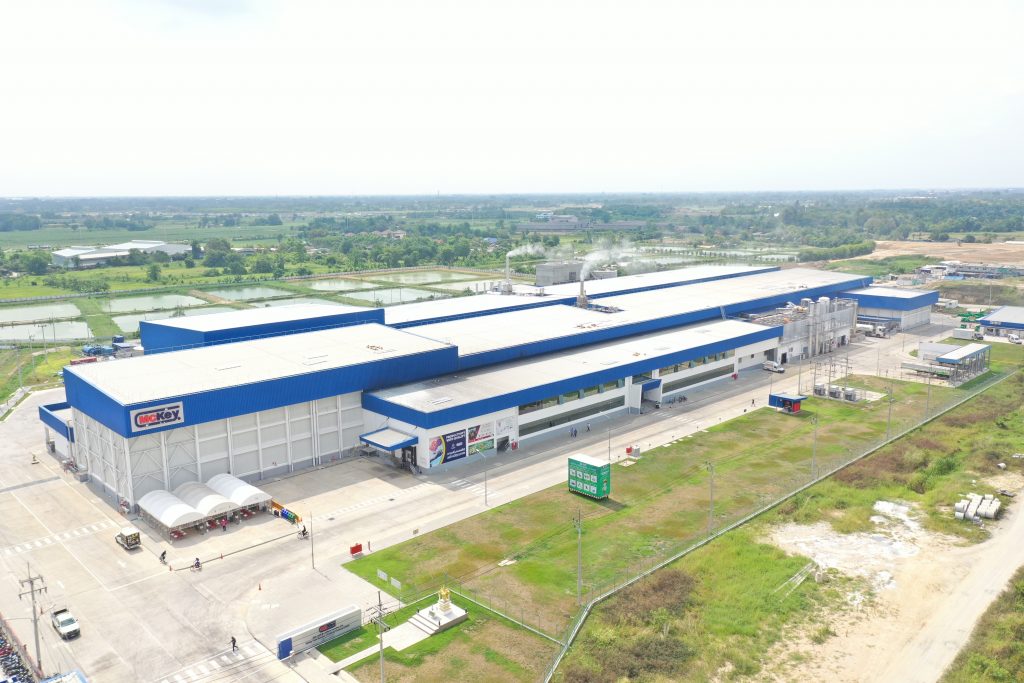Fundamental to feeding a growing population is creating a more sustainable food system, and that means addressing our environmental footprint at every step in the supply chain and finding better, more efficient ways to get protein from family farms to family tables.
That’s why our Chonburi facility in Thailand has gone 100% paperless in their manufacturing systems – production, food safety and quality assurance, and safety – for frontline operations and implemented RedZone, a connected workforce solution for manufacturers and one of many tools used to go paperless. It’s a move that not only makes sense from an environmental standpoint – a recent Forbes article notes approximately 1 billion trees’ worth of paper is thrown away every year in the U.S. alone – but helps team members as they work to feed our growing world.
This change has removed 188 paper-based forms, consolidating all work to tablets, meaning our team members can communicate and respond to data in real time, create more predictive analytics, and more efficiently plan for tomorrow as more of our Asia Pacific facilities move to a paperless system.
“The 188 paper-based forms are only for one plant in Thailand. Now imagine what a difference it will make when we have all our 18+ plants on the same platform shortly,” says Heidi Carlsen, senior vice president of International Transformation for Tyson Foods. “This effort is 100% driven by the team members on our production floor and every word of recognition goes to them and their extraordinary effort and 5C mindset – even during the stressful times of COVID.”
In practice, RedZone means team members can be more proactive and agile. Management can log-in to multiple locations remotely and communicate directly with team members on the floor, opening the door for more collaborative and strategic decision making. Digitizing workflows also safeguards information and knowledge and streamlines processes and communications – all creating a more engaged workforce and allowing for growth. Team members on the floor can also see how their contributions add up and track unit goals.
“The adoption of 100% paperless utilizing RedZone was recently put to the test by a Global Food Safety Standards Audit – BRC,” says Nicol Hingst, head of Food Safety and Quality Assurance for Tyson Foods Asia Pacific (APAC). “The team was able to provide all necessary records electronically through RedZone, satisfying the 3rd Party auditing firm, validating success of the paperless system and achieving benchmark audit result with the scoring of AA grade.”
The impacts of going paperless and implementing RedZone are already being felt, Carlsen says. This change is teaching team members to do more with less waste, increasing productivity, efficiency, and creating more transparency in our production lines. Based on current productivity efforts, teams have already seen an average 15%-20% uplift in efficiencies. Going paperless and utilizing RedZone is just one step in our international business unit’s continuous improvement program, Tyson International Productivity System (TIPS).
But it’s not just about creating a more efficient and sustainable work environment. Team members in Thailand are now working in a 100% digital workplace, learning new skills in data, analytics, automation, and digitalization – all tools needed in feeding the future.





